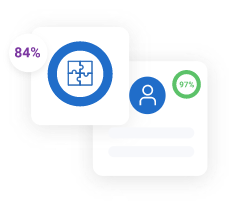- Application
- Information
Free review on your application |
1:1 counselling by certified consultants |
Higher acceptance rate on your top choices |
Program Description
Course content and assessments have been designed to help you develop both theoretical knowledge and understanding, as well as the practical skills to enhance your career and academic opportunities.
Each year, the course is reviewed to ensure it includes the major causes of illness and death globally, as researched by the World Health Organisation (WHO) as well as the major causes of sickness absence from the workplace, to give you a rounded understanding of the way disease affects human life.
This course has been mapped to the Royal Society of Biology (RSB) Accreditation Matrix. This means that when you graduate you may be eligible to apply for professional registration with the RSB and then as a Registered Scientist (RSci) with The Science Council to receive accreditation (additional costs may apply).
Biosciences are a varied, interesting and important area to study and we’ll explore technical theory from both chemical and molecular levels through to the human body as a whole.
Practical elements are another key focus of the course and you will be expected to perform advanced hands-on experiments which includes computer-based activities. Combining the two helps to solidify knowledge of the subject and prepares you for your career.
Entry Requirements

Are you eligible to apply?
Program Benefits
- Upon completion of this course, you will receive a qualification awarded by Coventry University
- You will receive support with applying for short and long-term placements, to gain the experience employers desire, with our in-house Careers & Employability department
- You will have the opportunity for multi-campus learning in Coventry, London and Scarborough
- In order to make higher education accessible to as many people as possible, we keep our tuition fees competitively priced
- Small tutorial group sessions ensure that you receive the mentoring help and support you need
- We deliver one module at a time during each block. This means you can dedicate your time to specialise in each subject without the distraction of numerous modules and multiple deadlines
- This course is packed with skills employers seek, such as innovation and laboratory competency.
Overview
The first year explores essential concepts such as chemistry, cell and molecular biology, microbiology and anatomy and physiology. You will also learn to use scientific vocabulary. The practical aspect focuses on vital laboratory skills specific to the subject which includes the safe use of complex equipment, report writing and the development of accurate lab skills. If you choose to leave the course after completing year one you are eligible for a Higher National Certificate (HNC) in Applied Biosciences.
In year two you will develop knowledge gained in your first year. Specifically, this includes more advanced practical skills and expanding on concepts such as thermodynamics, electrochemistry and chemical kinetics. You’ll also discover infectious diseases and how they affect people on a personal and public level.
The year concludes by focusing on human physiological systems and the mechanisms of the major causes of morbidity, mortality and sickness absence, which will include exploring cutting-edge genetic screening procedures.
By using scientific journals you’ll further develop the critical skills of academic writing and data presentation, and the principles of good scientific writing and data presentation will be examined. Throughout your second year, you will further develop and enhance your academic, practical and analytical skills in preparation for year three, and build skills that are attractive to employers.
Students who choose to leave the course after completing year two are eligible for a Higher National Diploma (HND) in Applied Biosciences.
Curriculum
Careers
Graduates have progressed into further education, undertaking a master’s degree in related subjects, such as:
- Biotechnology
- Cancer Research
- Pharmacology and Drug Discovery
- Molecular Micobiology
- Medical Sciences
- Polymer Chemistry and more
Graduates have also gone on to work at a number of nationally and internationally renowned companies such as GlaxoSmithKline. HelloFresh, Oxford Immunotec and ALS Environmental.
Need help applying to this program?
Similar programs |